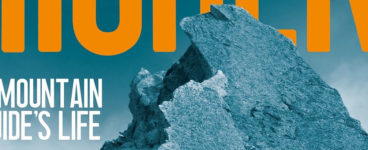‘We are called, therefore, into participation and intra-action. It is true that, for better or worse, we always participate in life’s flow.’
Deborah Bird Rose was a world-renowned anthropologist and leading figure in environmental humanities. Shimmer was her much-anticipated final book and reflects on her etho-ethnographical fieldwork with flying fox scientists, conservationists and Australian Aboriginal communities.
Extract taken from Shimmer: Flying Fox Exuberance in Worlds of Peril
By Deborah Bird Rose
Published by Edinburgh University Press
The fact is that we will never know what it is like to be flying-fox, or a tree. As the ecologist Frank Egler famously, and wisely, put it: ‘ecosystems may not only be more complex than we think, they may be more complex than we can think’. What is true of ecosystems is true at other scales. Flying-foxes individually are more complex than we think, and complex in ways beyond our thought. Their ethos includes their many social skills and cultural repertoires. And yet we also share glimpses of worlds, actions and connectivities. The mutualisms that sustain all of us are not obscure, and new information is always emerging.
Responsibilities: One of the most devastating effects of the animal-human binary has been the rejection of the idea that we have ethical responsibilities towards other creatures. Although in recent years this binary increasingly has been undermined in favour of connectivities across borders of difference, there is still a strong social/political ‘common sense’ position that puts human interests above all others.
And yet, the call into responsibility is not dependent on the specifics of any given creature, its species, its usefulness, its cuteness; rather it is enough to know that the call is there. But at the same time, responses must always be appropriate to the needs of others, as best we can understand them. In writing, thinking and working across the boundaries of species we find ourselves face to face with both mystery and familiarity. Others are not replicas of us, and at times the gap is incommensurable. And yet, we are all kin within the family of life on Earth. This insight into kinship was the ‘real scandal’ of Darwin’s work; it reveals the connectivities that the animal-human binary sought to conceal. When we live ethically, we become participants in flows of mutual life-giving. Ethics arising in the actual conditions of life cannot be abstract and universal, nor can they constitute a closed system. By the same logic, ethical writing requires openness both to the peril and to the joy of others. There are words of alarm – necessary and passionate, aiming to amplify ethical claims. Equally there is praise and celebration – for the lives of others, their passion and their gifts. Even as I raise my voice against violence, I focus my study on the beauty of flying-foxes’ ways of living: their high-flying verve, their joyful labour awash in pollen and nectar, their travels and attachments to home place, and their intensely social lives.
Multispecies ethnography: New understandings of connectivity enable new fields of research and writing that embrace affirmations of participation. One of the great anthropologists of the Anthropocene, Anna Tsing, evokes the excitement of this gripping moment:
There is a new science studies afoot . . . and its key characteristic is multispecies love. Unlike earlier forms of science studies . . . it allows something new: passionate immersion in the lives of the nonhumans being studied. Once such immersion was allowed only to natural scientists, and mainly on the condition that the love didn’t show. The critical intervention is that it allows learnedness in natural science and all the tools of the arts to convey passionate connection.
Deeply attentive to the lives of nonhumans, this new research is committed to engaging with diversity amongst humans as well. Multispecies ethnography, articulated initially by Eben Kirksey and Stefan Helmreich, is only possible because so many boundaries are now understood to be porous. Wide-ranging, open and inclusive modes of research cultivate arts of attentiveness. Multispecies research brings us into encounter with ‘a lively world in which being is always becoming, [and] becoming is always becoming-with’.
You are not alone: The West’s former view that all that was not human was simply mindless matter seems barely credible anymore. And yet, a huge shift is required when we consider that our human lives are situated in vast realms of sentience. The Australian Aboriginal philosopher Mary Graham states that one of the basic premises of the Aboriginal worldview is: ‘You are not alone in the world.’ And herein lies a powerful, perhaps alarming, challenge. In the midst of all this sentience, there is no hiding. The consequences of human action are not borne by mindless machines but by living beings, many of whom are conscious of their own lives and of the lives of others. And so, given that almost all the factors driving two Australian flying-foxes to the edge of extinction are biocultural (and include human and nonhuman actions), we bear responsibilities that are witnessed not only by other humans but by other living (and perhaps non-living) beings as well. We are called, therefore, into participation and intra-action. It is true that, for better or worse, we always participate in life’s flow.
Shimmer: Flying Fox Exuberance in Worlds of Peril by Deborah Bird Rose is published by Edinburgh University Press, priced £14.99.
ALSO IN THIS ISSUE

 Environmental Picture Books
Environmental Picture Books
‘We share the best of our inspiring and beautiful picture books which help encourage wee ones to gro …

 Higher Ground
Higher Ground
‘Once more I saw the Universe for what it is, infinite and pitiless; I could feel the sting of death …













